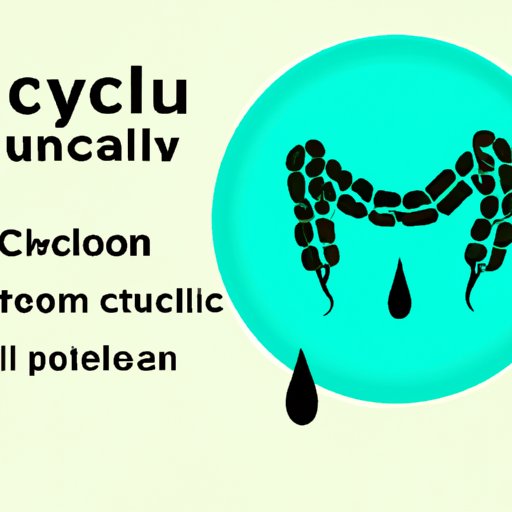
I. Introduction
E. coli in urine, also known as urinary tract infection (UTI) caused by Escherichia coli bacteria, is a common bacterial infection that affects millions of people worldwide. It is important to know the causes, symptoms, and prevention of the infection to prevent its spread and manage its symptoms.
II. Understanding the Causes and Symptoms of E. Coli in Urine: A Comprehensive Guide
E. coli is a normal gut bacteria that typically lives in the intestines. However, when it gets into the urinary tract, it can cause an infection. There are several strains of E. coli, but some strains are more likely to cause UTIs than others.
The most common way E. coli infections occur is when the bacteria from the digestive system spread to the urethra and then the bladder. Women are more likely than men to develop UTIs because their urethra is shorter, making it easier for bacteria to enter the bladder. Some common symptoms of E. coli in urine include painful urination, burning sensation, frequent urination, and cloudy or foul-smelling urine.
III. The Surprising Ways E. Coli Can Enter Your Urinary Tract
The urinary tract consists of the kidneys, ureters, bladder, and urethra. The urinary system is responsible for filtering waste products from the blood and excreting them in urine.
E. coli can enter the urinary tract through several ways, including improper hygiene practices, sexual activity, and diet. Poor hygiene practices, such as wiping from back to front or not properly cleaning the genital area, can introduce bacteria into the urinary tract. Sexual activity can also increase the risk of developing UTIs, particularly in women. Certain foods and drinks, such as caffeine, alcohol, and spicy foods, can irritate the bladder and increase the risk of developing UTIs.
IV. Protecting Yourself from E. Coli in Urine: Tips and Tricks
There are several ways to prevent E. coli infection, including basic hygiene practices, dietary changes, and safe sexual practices. Basic hygiene practices, such as wiping from front to back, cleaning the genital area before and after sexual activity, and wearing clean and dry clothes, can help prevent bacteria from entering the urinary tract. Eating a diet rich in vitamins and nutrients can help boost the immune system and reduce the risk of infection. Safe sexual practices, including using condoms and urinating after sex, can also help prevent UTIs.
V. The Science Behind E. Coli Infection: How It Happens and What to Do About It
E. coli bacteria infect and multiply in the urinary tract, causing inflammation and pain. Treatment for E. coli infection typically involves antibiotics, but natural remedies such as cranberry juice and probiotics have shown efficacy in preventing and treating UTIs. Managing symptoms includes staying hydrated, using a heating pad, and taking pain relievers if necessary. Severe cases of UTIs may require medical intervention.
VI. Preventing E. Coli in Urine: A Holistic Approach to Urinary Tract Health
Preventing E. coli in urine requires a holistic approach to urinary tract health. Probiotics and herbal remedies, such as D-mannose and uva ursi, can help maintain healthy bladder and urinary tract function. Avoiding irritants such as soaps, lubricants, and fragrances can also help prevent UTIs. In addition, staying hydrated, maintaining good hygiene practices, and keeping the genital area clean and dry are essential to maintaining a healthy urinary tract.
VII. Conclusion
Understanding the causes, symptoms, and prevention of E. coli in urine is important to prevent and manage UTIs. Practicing good hygiene, safe sexual practices, and maintaining a healthy urinary tract can go a long way in preventing UTIs. Seek medical attention if experiencing symptoms of E. coli in urine to prevent complications and manage the infection effectively.




